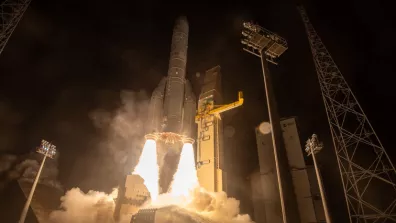On 16 September 2025, Airbus Defence and Space and CNES have decided to extend the operations of the Pléiades constellation until the end of 2028. Designed for civil and military users, the two satellites will thus be able to continue observing and mapping the Earth's surface for two more years. This contract extension will enable us to respond to very strong commercial demand in terms of resolution and responsiveness.
Under the initial agreement, signed in 2008, CNES entrusted Airbus Defence and Space with the responsibility of being the exclusive civil operator of the Pléiades programme. The agreement had already been extended in 2021 and then in 2023, with operations scheduled to end at the end of 2026. Designed with a minimum lifespan of five years, the two satellites in the Pléiades constellation are still fully operational today, after nearly 14 years of service. This new extension until the end of 2028 illustrates the reliability and quality of the satellites manufactured by Airbus and its expertise in the field of Earth observation satellites.
Launched in the early 2000s, the Pléiades programme was already highly innovative with its very high-resolution 50 cm images, a large acquisition capacity of up to 1,000 images per day, exceptional agility and daily revisit anywhere on the globe. The two Earth observation satellites can thus provide colour images of any location on the planet in less than 24 hours.
Following on from Pléiades, the CO3D three-dimensional optical Earth observation constellation was successfully launched from the Guiana Space Centre on 26 July. It is part of the ongoing collaboration between CNES, the French Ministry of Defence and Airbus Defence and Space. Finally, the Pléiades Neo Next programme launched by Airbus Defence and Space, which is currently under development, will strengthen its Earth observation constellation with native resolution in the 20 cm class.




